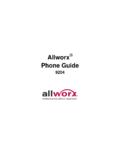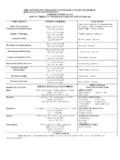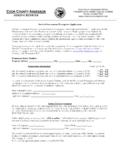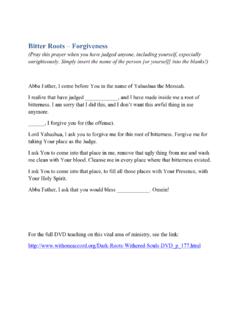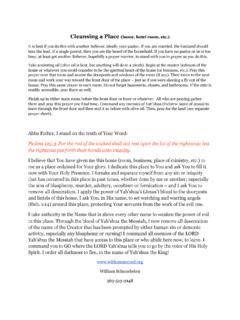Transcription of Selling Honey in Pennsylvania - Pennsylvania Honey Queen ...
1 1 Selling Honey in Pennsylvania Honey is regulated by the Bureau of Food Safety which is part of the PA Department of Agriculture Laws Affecting Sale of Honey : 1. Honey Sale and Labeling Act 184 of 1974 (3 Pa. 311 318) 2. The Retail Food Facility Safety Act & The Food Safety Act Act 106 of 2011 (3 Pa. 5701 5737) House Bill 2565 Amends Act 106 to exempt retail food facilities and food establishments from registering their Honey products with the Department of Agriculture when 100% of the products being offered are produced or processed on location. General Guidelines: 1. As long as Honey is made, processed, and sold on the same farm, the Honey producer is exempt from the $35 Food Safety Registration Fee. - All Limited Food Establishment guidelines will still apply. - On the farm could be a true farm, a single-family home, an apartment, or residential property. It is the site in which the Honey is processed and produced.
2 No Food Safety Registration Application is required. - While NOT in the Food Safety system, the Honey producer CAN be inspected if there is a complaint. 2. If Honey producer sells off-site of his or her farm : (Off site locations include stores, farmers markets, internet, craft shows, restaurants, ag fairs, etc.) - Then, he or she MUST fill out a Limited Food Establishment Application AND FOLLOW the Guidelines for the Sanitary Operation of Honey Extracting Facilities. - There is still NO $35 fee if Honey was made and processed on the farm. There will be routine inspections of the processing site. - If NO fee is paid, there is NO registration issued. The Law exempts the on-farm Honey processer from a fee but not potential inspection. The Food Safety Inspector is not inspecting 2 Honey processors that are only Selling on farm, but Food Safety Inspectors are inspecting Honey processors that sell their Honey off premises or sell to other businesses.
3 The application is filed so the Honey producers are entered into the Food Safety data base, and the Food Safety Inspectors can do the inspections. It also assures if another local health inspector in other jurisdictions finds the product for sale, we can affirm that it is from an inspected approved source. *If Selling Honey off-site of the farm for three days or less in a calendar year, a retail license is not required. If Selling more than four calendar days in a year, a license may be required. If the only product sold is bottled Honey , then the retail location would be exempt from a license fee. If other foods are sold in addition to Honey , a license may be required, and a $14 temporary license, good for 14 days cumulative in a calendar year, could be obtained. (The 14 days can be all at one time or added up throughout the year.) Frequently Asked Questions: 1. What if I raise, process and sell my Honey on site ( farm ), but I need to buy in and sell another beekeeper s Honey to keep up with the demand for Honey ?
4 It is PA Honey and I bottle it on my farm. You need to register with Food Safety, pay the $35 registration fee, and you will be inspected. You are not exempt because the Honey is not produced and processed on the same site. 2. I have well water. Since I do not use water in the production of the Honey , just for the clean-up, can I buy and use bottled water rather than getting my well water tested (which costs a fair amount of money)? Food Safety s Response: He could use water from any approved source, so yes, bottled water would work (spring or distilled); although, he will need to have a means for hand washing as well as which will require heating the water. Well water testing is not that perhaps $10-$15 per year for seems to me he would spend that on bottled water, as well as whatever he would need to get the warm water to a hand wash sink 3. What if I sell other food products grown on my farm? This does NOT exempt you from any other Food Safety Rules and Regulations.
5 It only applies to Honey . You must follow the Food Safety Rules for other products as appropriate. Other foods that would not require registration or inspection are raw agricultural commodities. Any processing of foods is not exempt. 4. What if I am Selling my Honey in another state? You MUST register with Food Safety. You MUST pay the $35 registration fee. You WILL be inspected by a Food Safety Inspector about every 24 months. 3 5. What if I belong to a club and we have an extracting site ( Honey house) that many members use? The site MUST be registered. The $35 Food Safety Registration fee MUST be paid. Although the club or organization can be listed as the owner on the registration, the name of an actual PERSON, who is responsible for the Honey house operation (perhaps the club president) must be listed with the owner information. The beekeepers that come to that site do NOT need to register, but must be able to show that Honey was processed there through some type of recordkeeping.
6 The owner/operator should keep a log with names and dates of beekeepers extracting Honey at that site. 6. What if Honey is made and processed on the farm , and then wholesaled? You MUST register with Food Safety. You do NOT have to pay the $35 registration fee. You WILL be inspected by a Food Safety Inspector about every 24 months. 7. What if a beekeeper gives or sells his or her Honey to family or friends. The family or friends then sell the Honey to someone else. The beekeeper may or may not know that this is being done. Which rules apply in this situation? Is the original beekeeper liable for any problems? Food Safety Staff reply: If they give to family and friends it is supposed to be for their personal use. If the product is resold in anyway then the Honey processor should be registered. Depending on who the family and/or friends are Selling to, they may or may not be found . I would suggest to the Honey processor that if they are concerned this is happening they may want to label their product Not for Resale.
7 8. What if I want to have the statement, Reg. Penna. Dept. Agr. or the PA Preferred on my Honey bottle? You MUST register with Food Safety. You MUST pay the $35 registration fee. You WILL be inspected by a Food Safety Inspector. 9. What is PA Preferred? PA Preferred is a state-supported agricultural marketing program. The Pennsylvania Department of Agriculture launched the PA Preferred program to identify and promote food and agricultural products grown, produced and processed in Pennsylvania . Please see the Pennsylvania Department of Agriculture s website ( ), the PA Preferred website ( ), or call (717)-705-9511 for additional information. Every 4 application has a and each product and producer will be evaluated to determine eligibility. Sometimes even if 100% of a beekeeper s Honey is NOT made by the bees while they are in PA, they will qualify. So, if you have questions, please contact someone in this division.
8 10. What are the benefits of being a PA Preferred member? It promotes PA agriculture. It is FREE. It can be used as a marketing tool to help with sales. Many Pennsylvanians want to buy and use local products. 11. What should be on a PA Honey or pollen label? -Common name (example: Honey or Pollen) -Ingredient(s) (only necessary if more than a single ingredient.) -Manufactured or Distributed By address -Net weight of the Honey or pollen Honey is the common name and it is a single ingredient, so label should say Honey . Honey with something added to it, like corn syrup, legally must say Honey Product , Honey Food , or something to that effect. Address of the processer or distributer. If from extracting site used by others, enter code or date of extraction too. There must be enough of an address so that the site could be found using a public search. -Business Example: Bees Gold, Harrisburg, PA - Individuals Example: John and Jane Beekeeper, Main Street, Harrisburg, PA (or PO Box 1, Harrisburg, PA) You may wish to put Do not feed to infants under 1 year of age on your label, but it is not required.
9 Infant botulism is caused by Clostridium bacteria which thrive in soil and dust. This can also contaminate certain foods, including Honey . (Symptoms and signs of infant botulism include muscle weakness, poor sucking, a weak cry, constipation, and floppiness -decreased muscle tone.) Even pasteurized Honey can contain viable botulism spores because the Honey must be boiled to kill the spore. Because of this, infants under 1 year should not eat food with Honey listed as an ingredient, even if the food is cooked. The intestines usually contain enough acid in people over 1 year of age to destroy any toxins produced by botulism bacteria found in Honey . 12. Important to remember: Do NOT make claims that Honey or pollen will absolutely cure specific or nonspecific diseases, problems, etc. unless you are registered with the Food and Drug Administration! Honey and pollen are not registered as a drug . 5 13. I keep my bees in Town A, PA but I process the Honey from them in Town B, PA.
10 Is it a problem if I put my business name & Town A, PA on my label but add a sticker saying it was processed in Town B, PA? Basically, I don't want people to see the label & assume that I keep the bees in Town B, & not in Town A. Someone told me that they are pretty sure I can't have Town A on the label, but to me, as long as I include the address where it is processed, it doesn't seem like it would matter. Help! Food Safety s Response: The name and address of the processor or distributor does not need to be the location of the processing It could be a corporate or headquarters address - as long as the address leads us to a competent owner or manager who can then tell us where the product is from. For example all the Hershey chocolate bars say Distributed by Hershey Chocolate Company, Hershey, but very little of the product is actually made It could be made anywhere in the world even. They have plants in Mexico and But if you give them the lot code from a candy bar, they can tell exactly what processing facility the product was We may not know looking at the code, but as long as a competent person at the labeled address can answer that question, it meets the labeling requirements.


